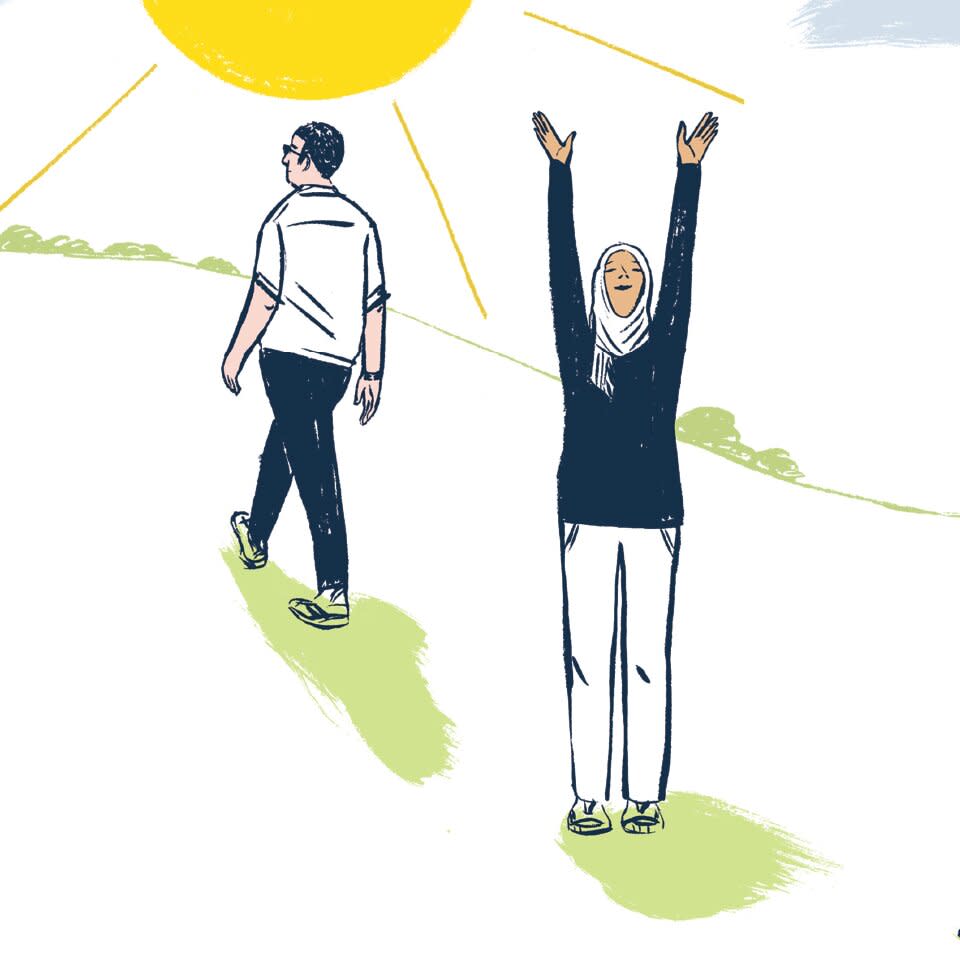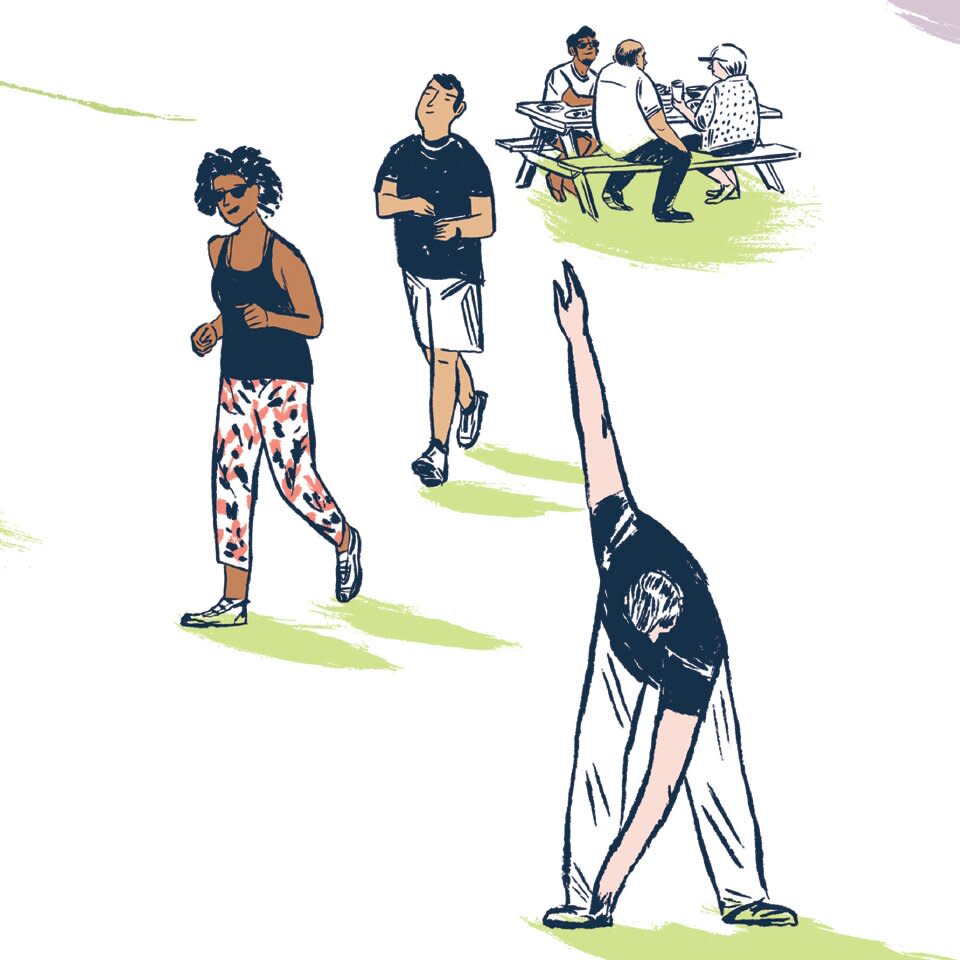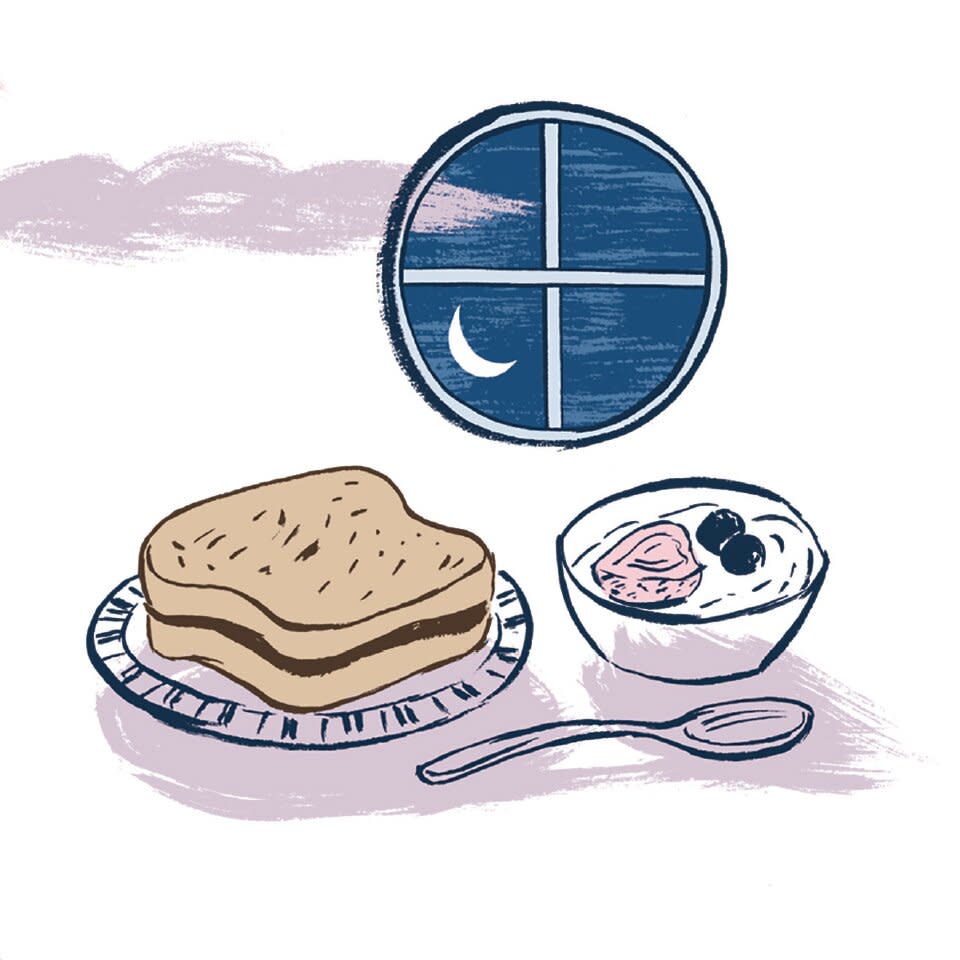What You Need to Know About High Morning Blood Sugar

Waking up and seeing a high blood sugar reading can be ... puzzling. However, it is not as uncommon as you think. Here is all you need to know about your blood sugar numbers in the morning and what may be contributing to it.

Katy Dockrill
Related: Diabetes Myths that Don't Lower Blood Sugar
1. Early Morning Hormones
As you sleep, while your body is fasting, your liver is the primary driver of your blood sugar levels, says Gary Scheiner, M.S., CDE, author of Think Like a Pancreas. All night long, the liver releases sugar to provide the brain and nervous system with energy. In the early hours of the morning, a series of hormones that boost energy and alertness send additional sugar into the blood to ready you for a new day. This rise from hormones is called the dawn phenomenon. But people with insulin resistance or too little insulin (or both) may have trouble dealing with this sugar surge, leading to high morning blood sugar levels, Scheiner explains.
Possible solutions: Consider your medications. If you take insulin, you may need additional basal insulin during the night to keep sugar stored in the liver when it's not needed elsewhere. (Basal insulin covers your insulin needs around the clock, including while you sleep.) If you have type 2 diabetes and take a medication other than insulin, you may need a greater dose of that med or an additional medication. Some drugs—like metformin—reduce insulin resistance and also prevent the liver from releasing excess sugar.
Don't Miss! Why Are Fasting Glucose Levels High?

Katy Dockrill
2. A Missed Workout
Being physically active boosts insulin sensitivity, allow-ing your body to use insulin more efficiently for up to 48 hours post-workout. And when you exercise regularly, your body naturally stays more sensitive to insulin. But if you miss your regular workout, you might see a jump in your usual blood sugar levels. This can happen in the morning (but could also happen at any time of day).
Possible solutions: Find an exercise routine that you like and can stick to. To avoid missed days, planning ahead can help: Take a look at the week ahead to anticipate when you might miss a workout, and how you can still fit one in. Even carving out a few minutes to be active may help prevent you from waking up to high numbers.
Read on: How Working Out Impacts Your Blood Sugar When You Have Diabetes
3. Delayed Effects of Fatty Foods
Blood sugar levels typically peak within an hour or so after eating. However, a high-fat dinner containing fried foods, pizza, or cheesy casseroles might delay this normal jump in blood sugar until the morning. Why? Large amounts of dietary fat can make it harder for insulin to do its job, explains Scheiner. Plus, fat slows down digestion and absorption, which could cause blood sugar to peak later than usual.
Possible solutions: Opt for fish, skinless poultry, beans, and vegetables sautéed in olive oil over foods high in saturated fat like fried foods and those covered in cheese. Filling up half your plate with vegetables can also help cut portion sizes of other foods—and your fat intake from those foods.
Don't Miss! Food Serving Sizes: A Visual Guide

Illustrations Katy Dockrill
4. Nighttime Hypoglycemia
If your blood sugar drops too low during the night, your body might crank out hormones like adrenaline to counter that response, says Scheiner, who is also the founder and clinical director of Integrated Diabetes Services in Wynnewood, Pennsylvania. This rebound, called the Somogyi effect, causes the liver to release more stored sugar that raises blood glucose.
Possible solutions: Monitor your blood sugar several times during the night—ideally using a continuous glucose monitor—to help identify if and when you experience hypoglycemia. And be alert for common symptoms of nighttime lows: sweating, nightmares, and waking up with a headache. If you do experience hypoglycemia, you may need a medication change such as less insulin or insulin secretagogue, a different type of medication, or a change in dosing schedule. If you're unable to adjust your prescriptions, a carb-containing snack at bedtime may do the trick. Here are some ideas for healthy, carb-containing night-time snacks:
Peanut butter sandwich
Low-fat yogurt
Hummus and vegetables
Frozen grapes
Small piece of fruit
Bottom Line
Isolating a single reason for elevated fasting blood sugar levels is tricky because there are so many different factors at play, explains Scheiner. "We must take a holistic view and play detective," he adds. Measure your blood sugar often and keep notes about medications, exercise, and food intake. Share all of this information with your health care team and allow them to play detective with you.
